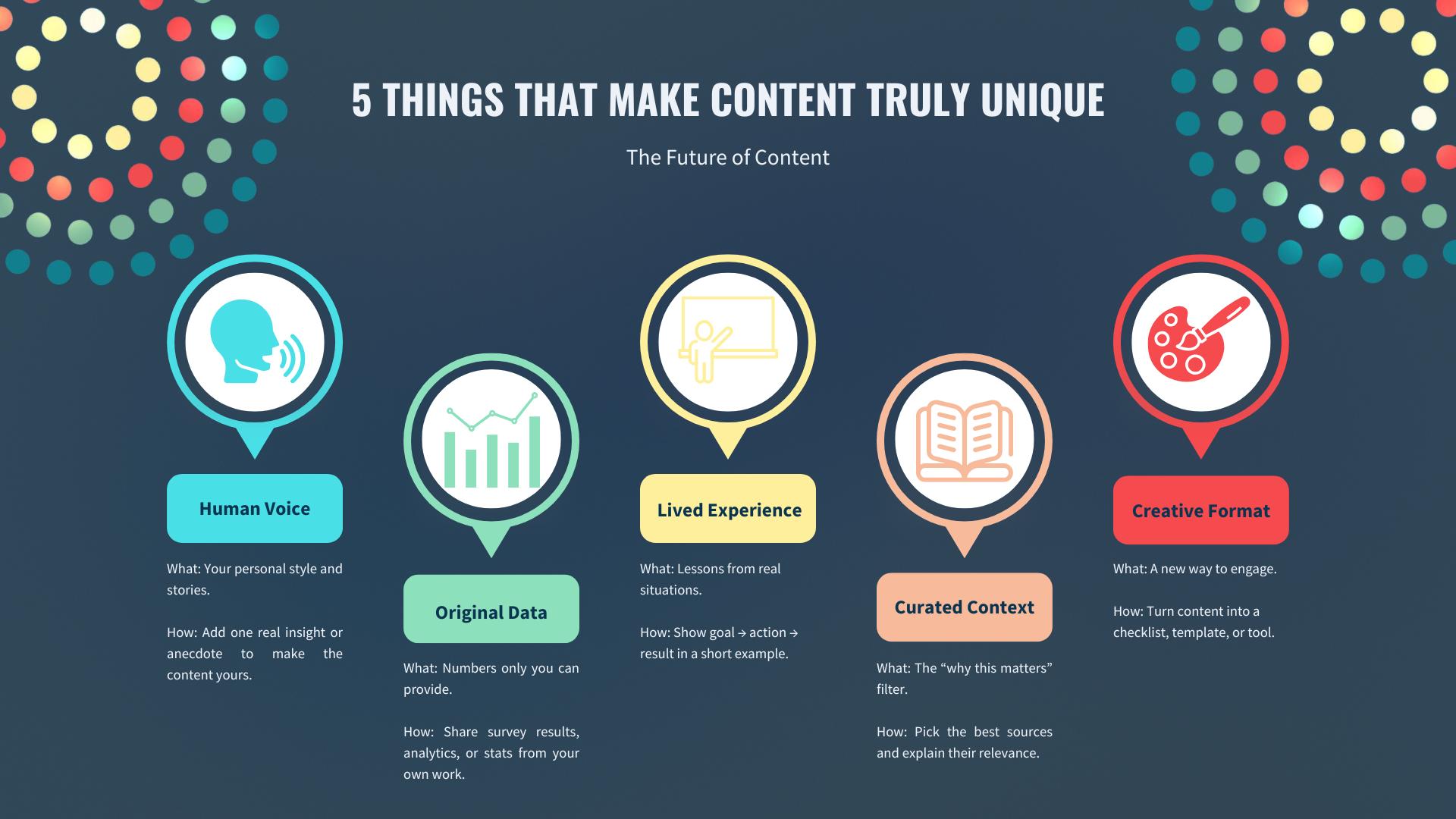The AI Content Deluge: Navigating Information Overload in the Age of Generative AI

AI Can Write, But Who's Listening? The Content Overload Paradox
Generative AI has burst onto the scene, promising to revolutionize everything from creative endeavors to business operations. One of its most immediate and impactful applications has been in content creation. With a few prompts, AI can churn out articles, blog posts, marketing copy, and even entire books at a speed and scale previously unimaginable. It's an exciting prospect, offering unprecedented efficiency and the ability to fill content calendars seemingly overnight.
But what happens when everyone has access to a limitless content faucet? We're rapidly approaching an era where the sheer volume of new information being produced is overwhelming. This is the Content Overload Paradox: generative AI has accelerated content creation to an astonishing degree, but in doing so, it has made the crucial task of finding truly valuable and useful content harder than ever before.
The Deluge of Digital Noise
In the past, content creation was a more labor-intensive process. Each piece represented a significant investment of time, effort, and often, expertise. This inherent friction acted as a natural filter, ensuring that a certain level of thought went into what was published.
Now, with AI, that friction has been drastically reduced. Businesses, marketers, individual creators, and even casual users can generate vast quantities of text with minimal effort. While this democratizes content creation, it also floods our digital spaces with an unprecedented amount of information, much of which may be redundant, generic, or simply not very good.
Think about your own digital consumption habits. How often do you feel overwhelmed by the endless scroll of articles, social media posts, and newsletters? How difficult is it to cut through the noise and find something truly insightful, original, or directly relevant to your needs? AI-driven content, while often grammatically correct and coherent, can sometimes lack the unique voice, deep insight, or genuine human experience that makes content truly resonate.
The Search for Signal in the Static
This paradox presents significant challenges for both content creators and consumers:
For Consumers: The signal-to-noise ratio is getting worse. Sifting through mountains of AI-generated or AI-assisted content to find authentic, authoritative, and useful information becomes a time-consuming and frustrating endeavor. Trust in online content may also erode as it becomes harder to distinguish human-crafted expertise from AI-generated prose.
For Creators (Human and AI-Assisted): Standing out in a sea of endlessly replicating content is becoming increasingly difficult. If everyone can generate similar articles on similar topics, how does any single piece gain traction or attention? The challenge shifts from "how to create content" to "how to create content that gets noticed and valued."
Beyond Quantity: The Future of Content Lies in Quality and Uniqueness
So, if AI can write anything, but no one's really listening, what's the solution? The answer lies in shifting our focus from quantity to quality, and from generic replication to unique value.

Human Curation and Vetting: The role of human editors, curators, and knowledge managers becomes more critical than ever. We need trusted sources and individuals who can filter the deluge, highlight genuine insights, and add the human touch of verification and context.
Originality and Deep Expertise: While AI can synthesize existing information, it struggles with true originality and generating novel insights that come from lived experience or groundbreaking research. Content that leverages unique human expertise, personal anecdotes, or proprietary data will stand out.
Strategic Distribution and Niche Focus: Instead of broadcasting to everyone, creators will need to be more strategic about where and to whom their content is distributed. Targeting niche audiences with highly relevant and valuable information will be more effective than broad-stroke content creation.
Beyond Text: Rich Media and Interactive Experiences: As text-based content becomes commoditized, there will be an increased demand for content in other formats – video, interactive tools, podcasts, and immersive experiences – that offer different ways to engage and absorb information.
AI as an Assistant, Not a Replacement: The most successful content strategies will likely involve AI as a powerful assistant to human creators. AI can handle the mundane, repetitive tasks, allowing humans to focus on higher-level thinking, creativity, strategic planning, and injecting the unique perspective that only a human can provide.
The Content Overload Paradox isn't a death knell for content; it's a redefinition. The future of content isn't about how much we can generate, but about how effectively we can create, discover, and consume content that truly informs, inspires, and connects. As generative AI continues to evolve, the challenge will be to harness its power to elevate, rather than dilute, the quality and impact of the information we share.